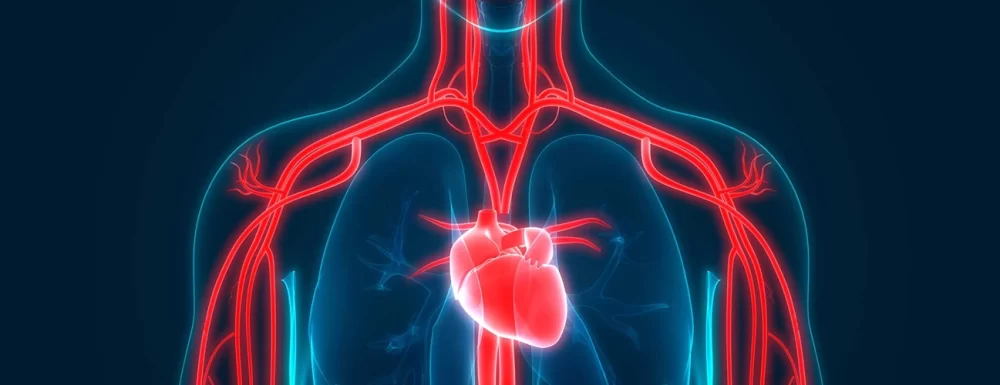The Importance of Cardiovascular Health for Long-Term Wellness
- 1. Why Cardiovascular Health is Crucial for Wellness
- 2. Understanding Your Cardiovascular System
- 3. The Impact of Poor Cardiovascular Health on Long-Term Wellness
- 4. Real-Life Stories: How Cardiovascular Health Affects Our Lives
- 5. How to Maintain Your Cardiovascular Health for a Healthy Future
1. Why Cardiovascular Health is Crucial for Wellness
Your cardiovascular health plays a pivotal role in your overall wellness. The heart and blood vessels make up the cardiovascular system, which is responsible for circulating oxygen and nutrients throughout your body. If your cardiovascular system is functioning optimally, you can enjoy better physical health, mental clarity, and a higher quality of life.
When you focus on maintaining good cardiovascular health, you lay the foundation for a healthier and longer life. It reduces the risk of developing chronic diseases, including heart disease, stroke, and hypertension, all of which can significantly impact your long-term wellness. In other words, a healthy heart is the key to staying strong, active, and vibrant for years to come.
2. Understanding Your Cardiovascular System
To truly grasp the importance of cardiovascular health, it’s essential to understand how the cardiovascular system works. The heart is a powerful organ, beating around 100,000 times a day, pumping blood through a vast network of arteries, veins, and capillaries.
When your cardiovascular system is in good condition, blood flows smoothly, delivering oxygen and nutrients to organs and tissues. However, issues such as clogged arteries, poor circulation, and heart irregularities can disrupt this vital process, leading to health complications that can affect not only the heart but your overall well-being.
3. The Impact of Poor Cardiovascular Health on Long-Term Wellness
Chronic poor cardiovascular health can take a toll on your body over time. Conditions like high blood pressure, high cholesterol, and atherosclerosis (hardening of the arteries) can reduce the efficiency of your heart and blood vessels. This not only puts you at risk for heart disease but can also lead to stroke, kidney problems, and other systemic health issues.
For instance, when your arteries become narrow or blocked, the heart has to work harder to pump blood. Over time, this can lead to heart failure or even a heart attack. Additionally, poor cardiovascular health is linked to mental health issues, such as anxiety and depression, as it can reduce blood flow to the brain, affecting mood and cognitive function.
4. Real-Life Stories: How Cardiovascular Health Affects Our Lives
Meet Sarah, a 45-year-old mother of two who had always been active but didn’t take her heart health seriously. Despite a family history of heart disease, Sarah ignored her high cholesterol levels and never prioritized exercise. After experiencing chest pains and a minor stroke, Sarah learned the hard way just how vital cardiovascular health is for long-term wellness. After undergoing surgery and adopting healthier lifestyle changes, Sarah now prioritizes her heart health, feeling better and more energized than ever.
Sarah’s story is a stark reminder that cardiovascular health should never be taken for granted. While genetics can play a role, lifestyle factors like diet, exercise, and stress management are key to preventing heart-related problems and improving overall wellness.
5. How to Maintain Your Cardiovascular Health for a Healthy Future
Taking proactive steps to maintain your cardiovascular health is one of the best investments you can make for your long-term wellness. Here are several strategies to keep your heart healthy:
- Exercise regularly: Aim for at least 30 minutes of moderate activity most days of the week. Cardiovascular exercises, such as walking, running, cycling, or swimming, can significantly improve heart function.
- Eat a heart-healthy diet: Focus on consuming fruits, vegetables, whole grains, lean proteins, and healthy fats. Reducing salt, sugar, and unhealthy fats will help keep your cholesterol and blood pressure in check.
- Manage stress: Chronic stress can harm your heart. Incorporating stress-relieving activities such as meditation, yoga, or mindfulness can help improve cardiovascular health.
- Get regular check-ups: Monitoring your blood pressure, cholesterol, and blood sugar levels is essential in preventing heart disease. Regular check-ups help detect any issues early on, allowing for timely intervention.
By making these lifestyle changes, you can protect your heart and ensure that you enjoy good health for many years to come. The key is consistency and making heart health a priority in your daily routine.





















